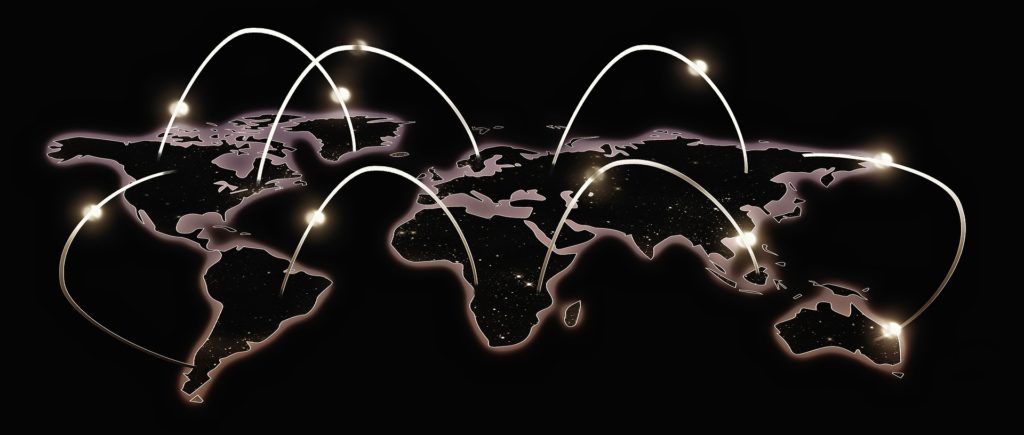Overzealous VPN advertising paints virtual private networks as a turn-key solution to internet privacy.
They love using big words like “private tunnel” and “military-grade encryption”.
Going so far as to suggest that a single click is all it takes to guarantee you\’re safe and private everywhere online.
Saying a VPN is all you need to be safe and private online is a little like saying a face mask is all you need to be healthy. It’s not going to hurt, but there’s a lot more to it than that.
There’s a chance that every piece of software you install is malicious and can see everything that you do before both online and offline.
WPS addressing information lets tech companies identify your location through Wi-Fi or Bluetooth positioning. You can be triangulated by looking at the nearby signal strength of known devices too. There’s also a money trail, 3rd party cookies, device session tokens, hardware tokens, E-tags, HTML5 local storage, single-pixel web beacons, and more.
If the CIA, FBI, NSA, or some other three-lettered government agency wants to know who you are online a VPN isn’t going to stop them.
With that in mind, let’s look at four legitimate reasons to use a VPN.
1. To Watch Movies, Shows, or Games That Are Blocked in Your Country
The main reason people use VPNs is that they want to watch or listen to something that’s unavailable in their country.
When you connect to a VPN the client routes traffic to the VPN server and then forwards it on to the final destination. If you connect to a server in the US, as far as Netflix, Hulu, or Amazon Prime can tell, you are browsing from the US.
Sometimes content is blocked because of state-sanctioned firewalls which you’ll find in China, Turkey, Vietnam, and the UAE, but most of the time it’s because of archaic broadcasting laws.
Netflix needs to get different licenses to show movies in different countries. If you’re living abroad and miss movies from home, or you want to add thousands of titles to your library with the click of a button a VPN can do that for you.
SkySports has thousands of streams that have got you covered for all soccer/football matches and plenty of other sporting events that aren’t on your local TV. With a VPN, it’s simple to connect to a server in the UK and get yourself a subscription.
2. Trade Derivative Markets on Cryptocurrency Exchanges
Cryptocurrency exchanges that offer derivate products like futures and leverage trading are either blocked for US-based traders or have slimmed-down offerings.
The irony is they’ve blocked financial instruments on BitMex and Binance and forced people to do business with less reputable exchanges to access them. Laws that were created to protect their citizens ended up doing the exact opposite.
A VPN is one of the few ways to get around these restrictions and trade with leverage. You will still need to prove you live overseas for the KYC (Know Your Customer) process, but that’s not too difficult to get around.
3. For Easier Logins While Traveling
When you log into accounts from an unexpected location, you’ll be asked to complete captchas and two-factor authentication – aka those text messages, you get with a code.
This can get annoying when you first land in a country and you don’t have access to a computer, or you’ve taken the sim out of your phone.
Using a VPN to browse from other countries will result in you needing to complete way more captchas than usual, but if you’re browsing from the same country then the opposite is true. The catch here is that a lot of websites keep a list of VPN IP addresses to deny services to.
If you are using a free VPN, you’ll likely need to complete way more captchas and there’s even a risk you’ll be locked out of your accounts. Give Surfshark a try and see if it works with all your accounts. It strikes a reasonable balance between popularity and reputation.
4. Get Around Bandwidth Throttling
Some ISPs monitor the activities of their customers and slow down your connection when you are torrenting. If you are paying for a service and a speed you should get what you pay for, but ISPs are a business. It’s cheaper for them to limit your connection than it is to expand the capacity of their network. ISPs wrap the whole network packet in an encrypted layer and your ISP is unable to see what type of traffic it is.
If you are going to torrent on a VPN, you should definitely pay for a provider. A free provider is going to be very slow for torrenting, and chances are they’ll limit your speeds more severely than your ISP would have.
In Summary
VPNs aren’t the turnkey solution to internet privacy that many providers are marketing them as. That’s not to say that they are completely useless. If you want to get around geo-blocking to access sites and content that’s blocked in your area.
- Review: Stellar Converter for OST - March 19, 2024
- High-Level Guide to Boosting PC Speed - February 19, 2024
- The Evolution of Digital Platforms: How 5G is Revolutionizing User Experience - February 5, 2024
